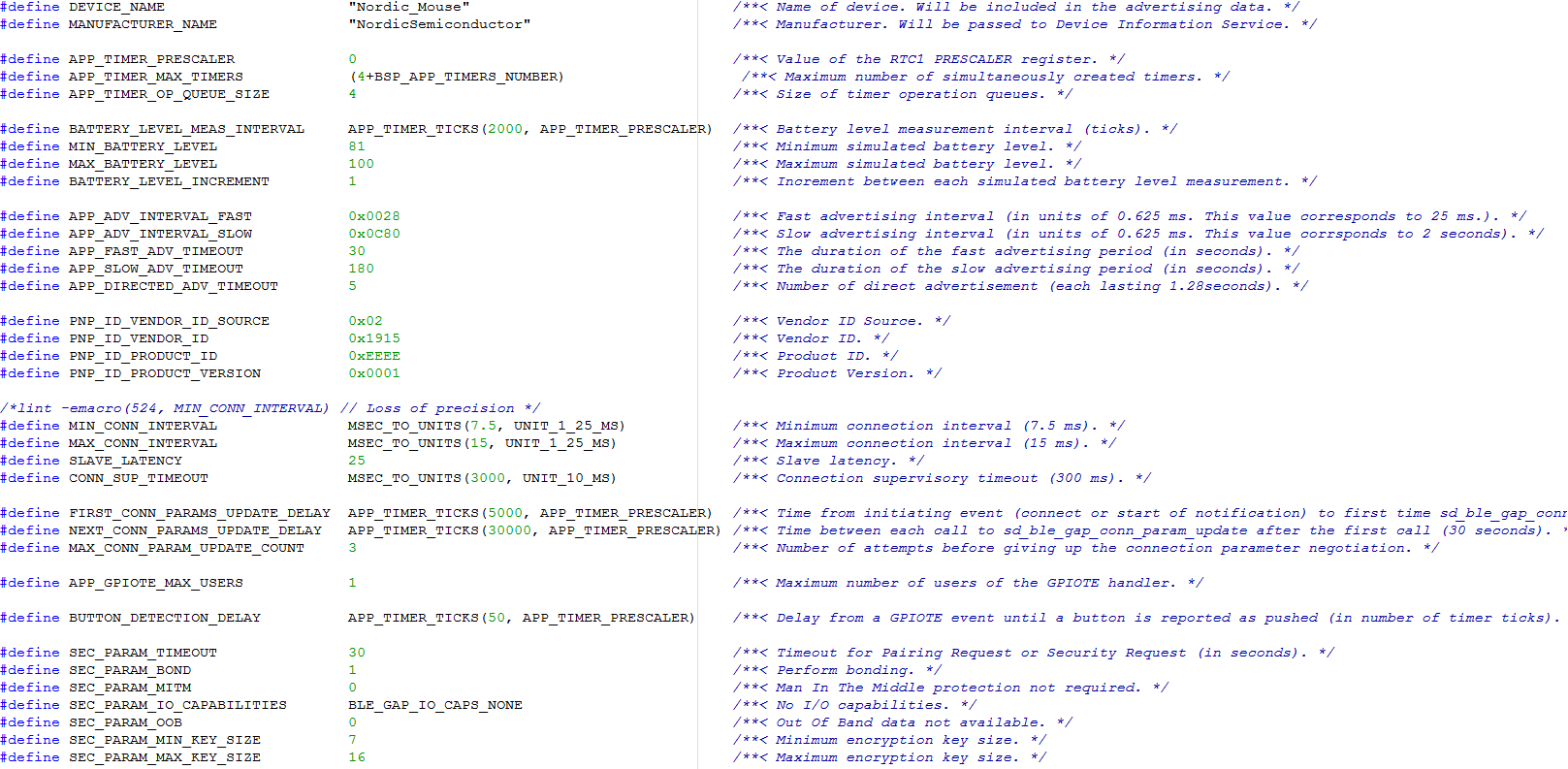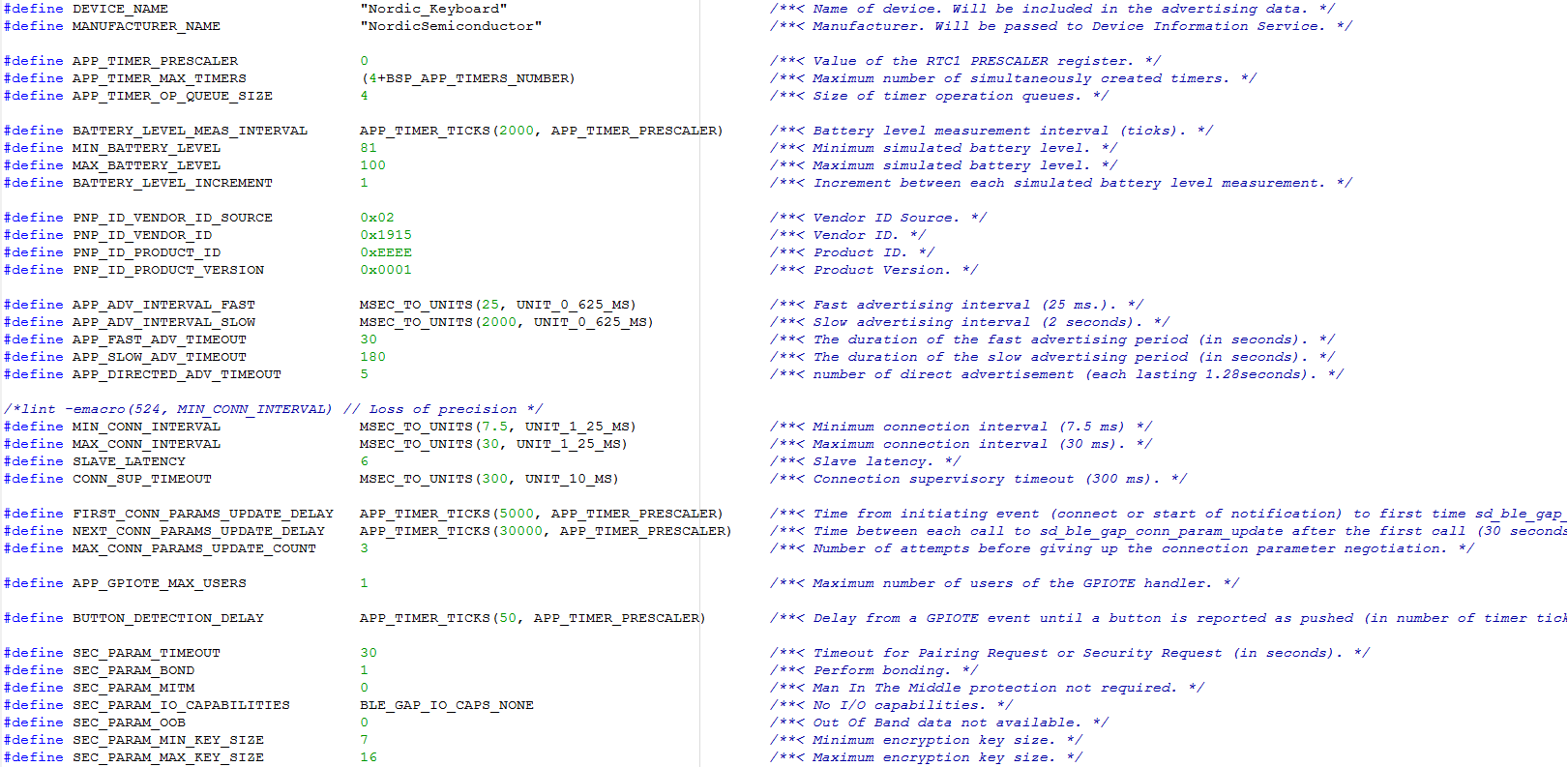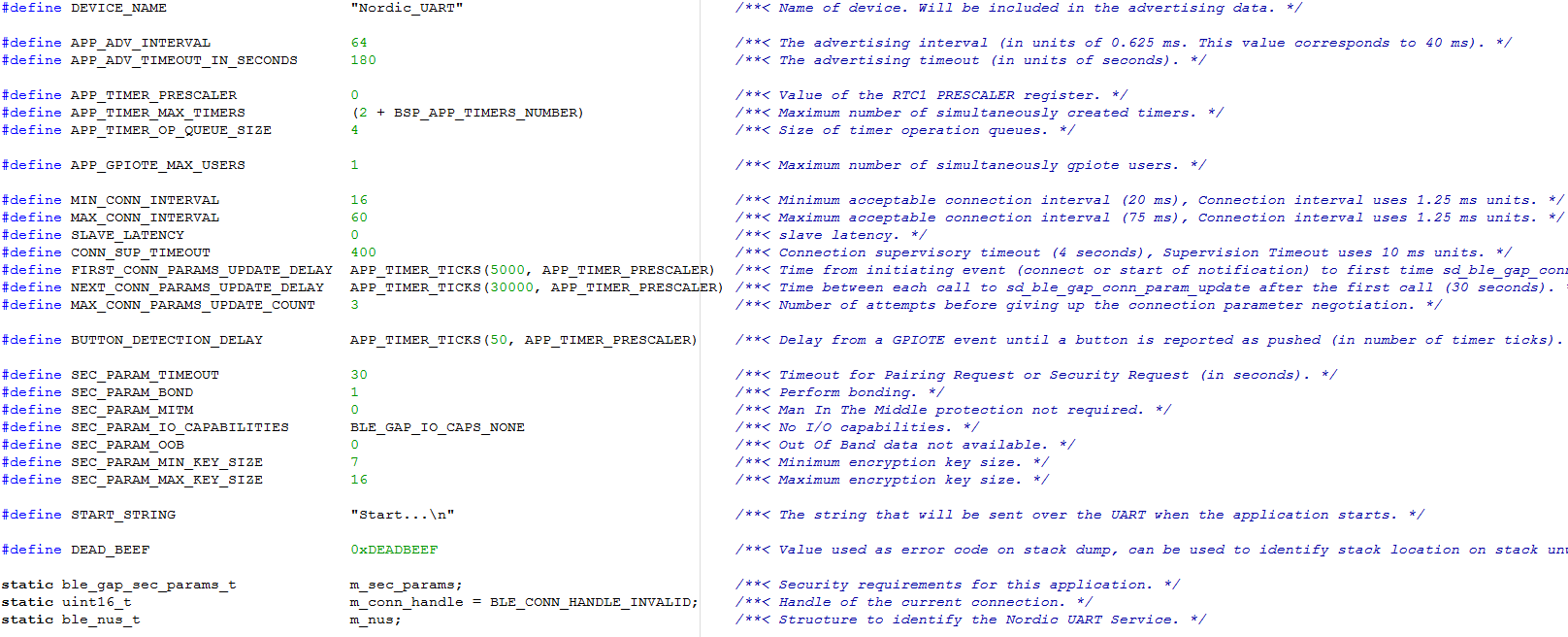Hi, I'm using my own custom board.
MCU : NordicSemi nRF51822-QFAA
SDK version : 7.2 (I use IAR 7.1 for ARM.)
Softdevice : S110 7.1
Each 3 examples does work with my custom board.
I used Nexus 5, Galaxy Note 3, iPhone 5S, and iPad air to test my board. (The OS of each test devices : Andriod 5.0.1 and iOS 8.1)
I have a question why these examples has different connection parameters.
-
HID Mouse

-
HID Keyboard

- NUS

////////////////////////////////////
=========================Mouse / Keyboard / NUS
Advertising interval : 25ms (fast adv) / 25ms (fast adv) / 40ms
Advertising timeout : 30s (fast adv)/ 30s (fast adv) / 180s
MIN_CONN_INTERVAL : 7.5ms / 7.5ms / 20ms
MAX_CONN_INTERVAL : 15ms / 30ms / 75ms
Slave latency : 25 / 6 / 0
CONN_SUP_TIMEOUT : 300ms / 300ms / 4s
(The annotation says the mouse's CONN_SUP_TIMEOUT is 300ms but I think it is 3s.)
(The security request parameters were same.)
So my question is,
-1. Why does each examples uses different parameters?
I'm trying to merge HID keyboard service and NUS.
However, I have problems when merging these two. So I thought the parameters causes the problem.
-2. The NUS examples isn't discovered using my iOS devices,
whereas the Android devices finds the board.
(Anyways when I use the nRF UART app,
the iOS devices does detect the board and send messages.)
What could be the reason? Is it related with the connection parameters?
Or since the NUS example does not uses the device manager, could this could be the reason?
-3. (Regardless of the connection parameters) As I said, my purpose is to merge services. I'm planning to merge NUS, HID (keyboard), HRS, and TPS.
Is it possible to merge all these services??
If possible, what should be considered to merge these services?
-Regards, Mango922
